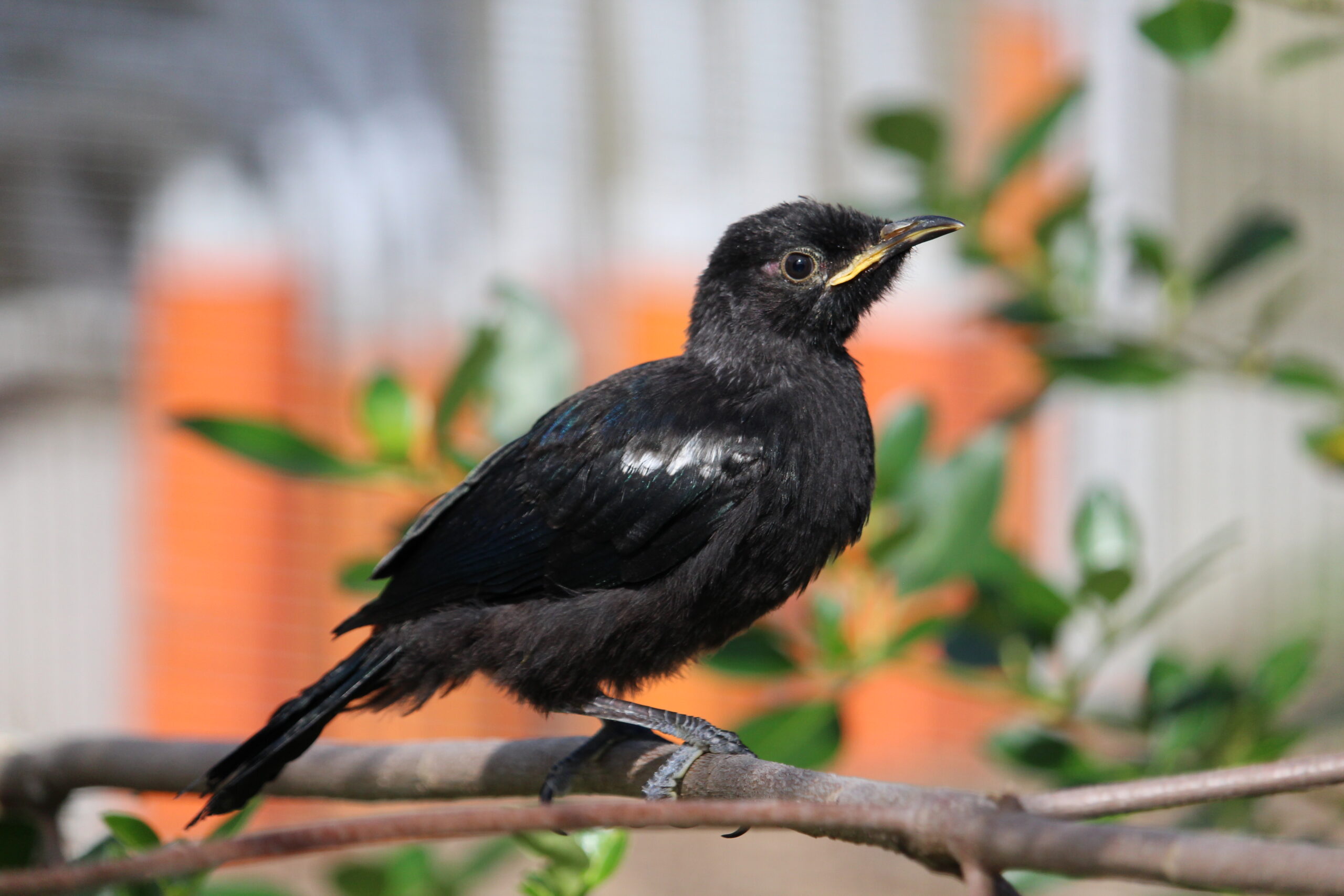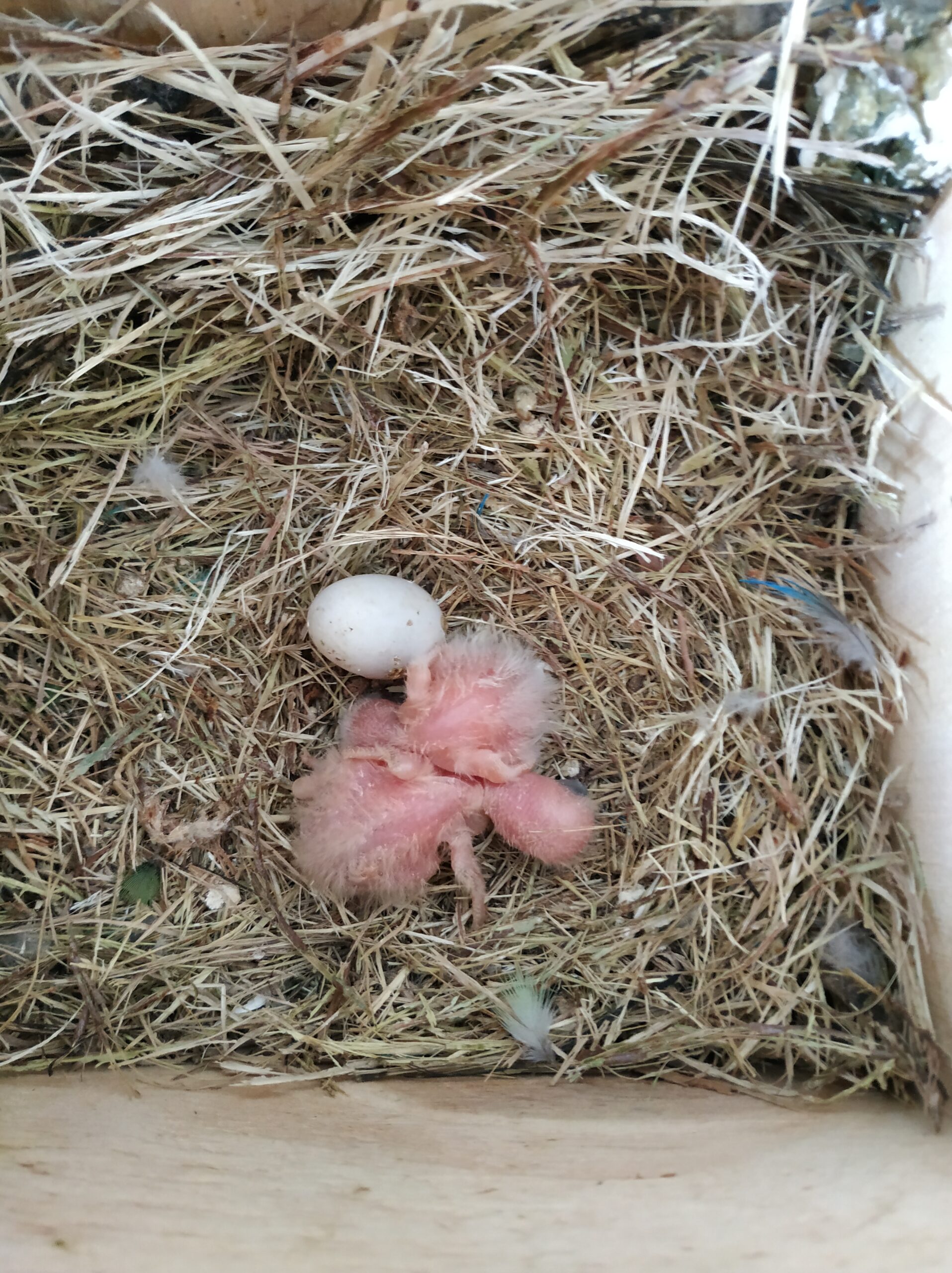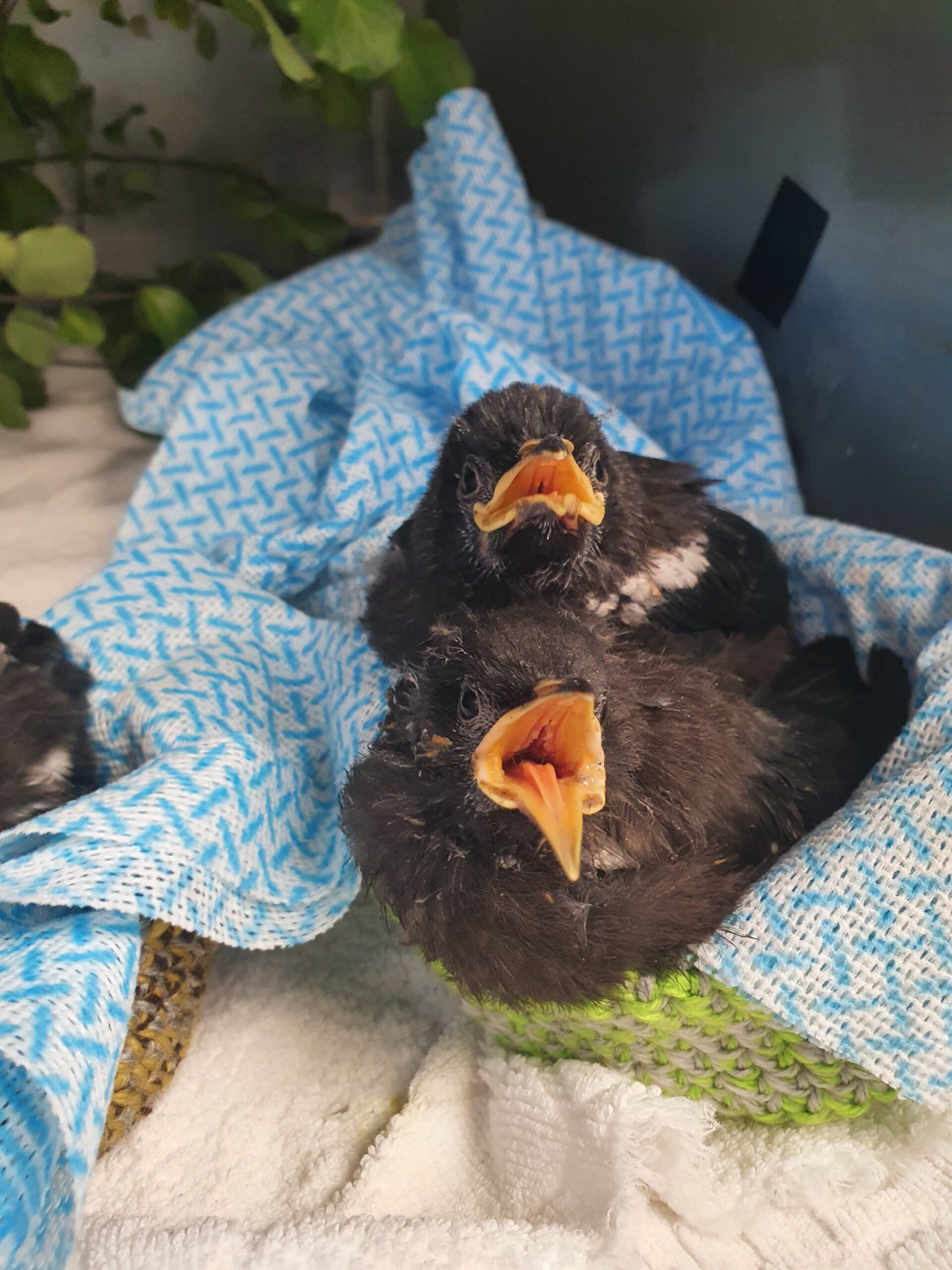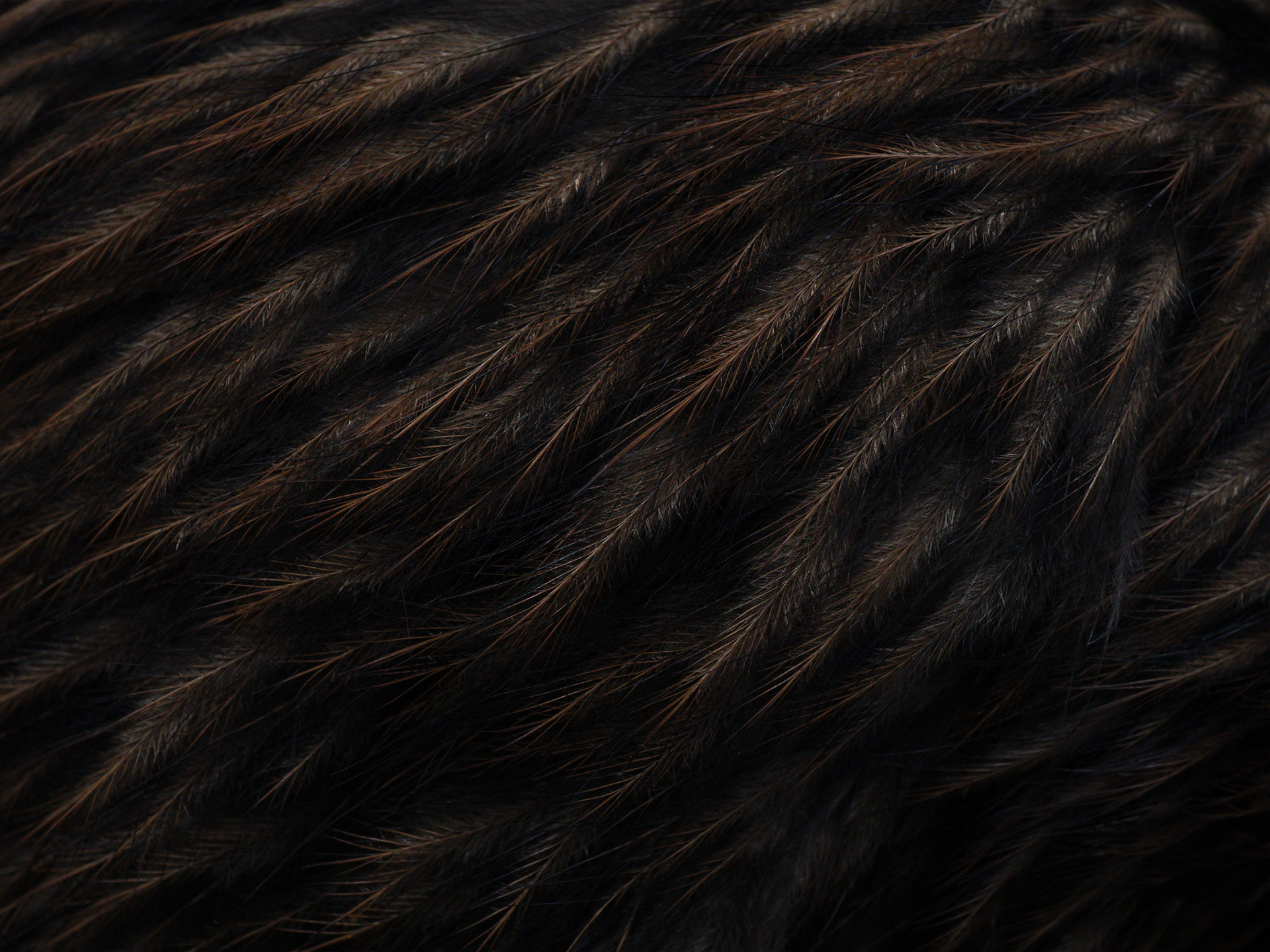Baby Birds: What to do!
Baby Birds: What to do!
There are three developmental stages to a baby birds’ life and only some of these will need our help. Most baby birds hatch with little to no feathers and require their parents to keep them warm and fed. These are known as hatchlings and will need to be taken to a vet ASAP if they have fallen from the nest. See pictures below.
Once the baby birds have started to grow in their coloured feathers and have opened their eyes completely, they can be considered nestlings (ducklings are considered to be nestlings as soon as they hatch due to the level of development). Nestlings still require their parents for food and warmth, but their parents can leave the nest for a periods of time throughout the day. However, they will still need to be seen by a vet if they are injured or fallen from the nest (and cannot safety be returned).
The final stage in a baby birds’ life is when they fledge or leave the nest and are starting to become independent from their parents. Known as fledglings, they will need to build up their flight strength and learn how to feed themselves, but the parents are still close keeping an eye on them. Often fledglings are “kidnapped” or “birdnapped” as they are often seen fluttering on the ground as they start testing out their wings. Unless they are injured or there is immediate danger (i.e. a predator around), these young birds are safe to leave alone and can be observed for any changes.
If you do find a baby bird that has fallen from its nest or has been injured, please contact the Department of Conservation Hotline at 0800 DOC HOT (0800 362 468) or Wildbase Hospital via Massey Vets (0800 738 363) as soon as possible.
If you are able to return uninjured baby birds back to the nest safely, we encourage you to do so as this is the best chance for the baby bird to survive.

-
 Hatchling
Hatchling -
 Nestling
Nestling -
 Fledgling
Fledgling
